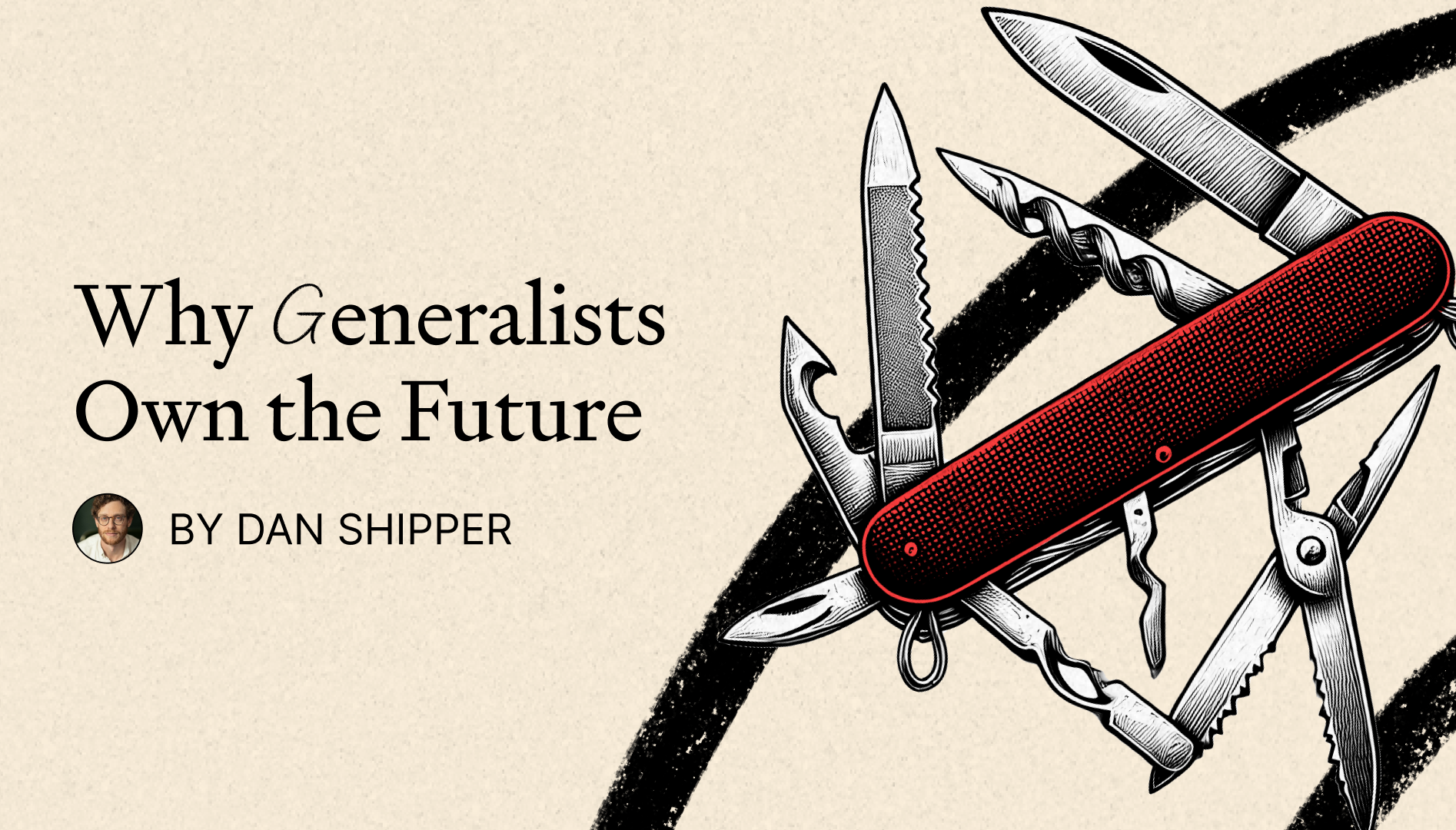Why Generalists Own the Future

🌈 Abstract
The article discusses the role of generalists in the age of AI, arguing that contrary to the view that specialization is the key to success, generalists have an advantage in navigating "wicked" environments where the rules are unclear and feedback is delayed or inaccurate. The article contrasts "kind" environments, where experts thrive, with "wicked" environments, where generalists excel by using their diverse experiences to tackle novel problems in unique ways.
🙋 Q&A
[01] The Age of AI and Generalists
1. What is the author's view on being a "jack of all trades and a master of none" in the age of AI?
- The author argues that this view is too narrow and misses the true advantage of generalists, which is their ability to adapt to new situations and desire to do so.
2. How does the author contrast generalists and experts in terms of their performance in "wicked" vs "kind" environments?
- Generalists thrive in "wicked" environments where the rules are unclear and feedback is delayed or inaccurate, as they can use their diverse experiences to attack problems in unique ways.
- Experts tend to shine in "kind" environments with clear, repetitive patterns and immediate feedback, which is also where large language models (LLMs) excel.
3. How does the author view the relationship between LLMs and generalists?
- The author argues that LLMs are a "potent weapon" for generalists, as they can use them to quickly get up to speed in new domains and apply knowledge from other fields.
- Generalists can use their adaptability and imagination to work through any "wickedness" that an LLM cannot handle on its own.
[02] The Historical Context of Generalists
1. What was the role of generalists in ancient Athenian society?
- In ancient Athens, citizens were expected to participate in all aspects of civic life, from politics to warfare, reflecting a societal ethos that valued the "wholeness or the oneness of life" and disliked specialization.
- This society of well-rounded individuals, or generalists, began to break down as progress led to increased complexity and the need for specialization.
2. How does the author suggest the role of generalists might evolve in the context of an advanced and complex economy enabled by AI?
- The author suggests that we might see a return to the Greek ideal of the well-rounded citizen, but this time with the aid of AI, which will allow citizens to play many roles more capably than without it.